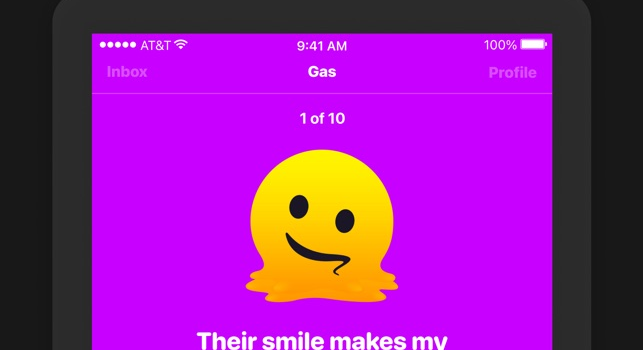
Former Meta (formerly Facebook) manager Nikita Beer has launched a new app called Gas, which has overtaken giant competitors like Instagram, Twitter and others. According to the Wall Street Journal, Gas is “the hottest app right now,” and costs like 1 platform in the app store.
A week after its official launch, the platform has gone viral mostly among high school students, and the app is only available for download in 12 states. The platform’s name is inspired by the idea that users can leave anonymous compliments for ‘gas someone up,’ just like other anonymous social media platforms like Eek Yak, NGL and others.
But what are the differences? First, the Gas team targeted teens or high school students by creating an Instagram account that included the username of the high school they attended. Once created, the account was closed and it followed each high school student.Luke Sofinos, CEO and founder of CourseKeyEDU, said Beer’s team used the good old velvet rope approach, initially not accepting any of the student’s requests. In other words, the app changes the bio of the same account to, say, Instagram and redirects teens to set the gas, saying “see who likes you.” As the situation began to skyrocket, Gag began adding thousands of users-not per day or per week, 30,000 users per hour. Gag was created by Nikita Beer in August 2022. Before that, he got a job at Facebook (now Meta) thanks to an app called tbh (an acronym for ‘honest’). The app raised money from Greylock Partners and the Founders Fund, gaining more than 5 million users by the time Facebook bought it in 2017.
However, the founder says that Gaz is a reference to the phrase “poisoning someone,” or boosting their confidence. Bier claims he made $1 million within ten days with a team of four people. The app accesses the user’s location, so you can select a high school and add classmates to see what compliments are given out. However, the app does not allow users to chat or text each other.
The founder of Gas Bier recently announced that the team had been the target of two DoS attacks, with multiple IP addresses from China. He said that after investigating, the app’s team discovered that the trafficking scam was perpetrated by an organization from China. “Our data shows users connecting from China when the app first started growing and the first fake review was posted that day,” he added, adding that, despite rumors, more than a third of teens in the U.S. downloaded the gas.
Sofinos said he suspects the move may have been made by his social media competitor, TikTok. He said new claims have been made from teens on other platforms such as SnapChat and TikTok, adding that people are using gas to kidnap minors. Because of this, local media, police departments and officials began issuing statements encouraging parents to ban children from using the app.

 Get in Touch
Get in Touch 


